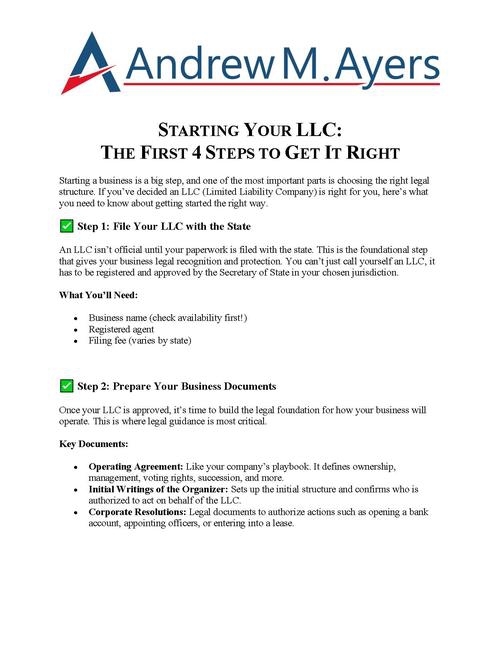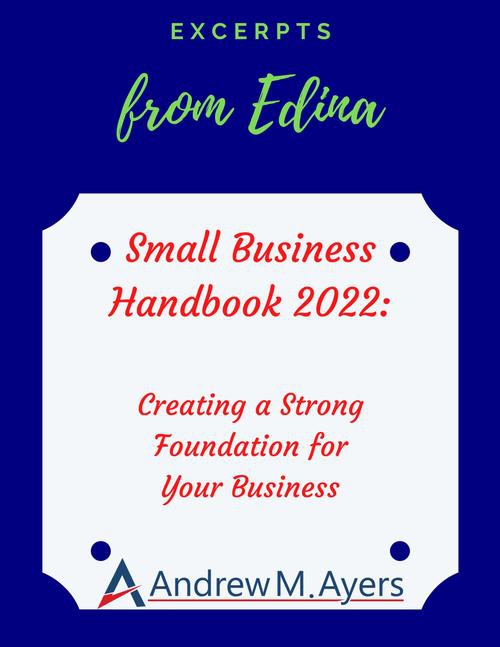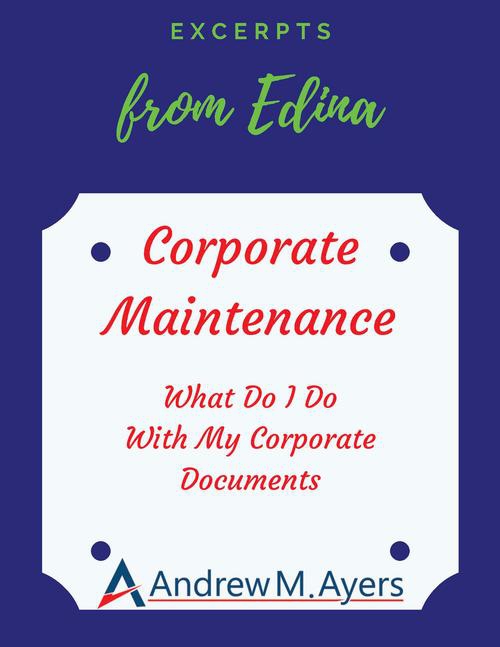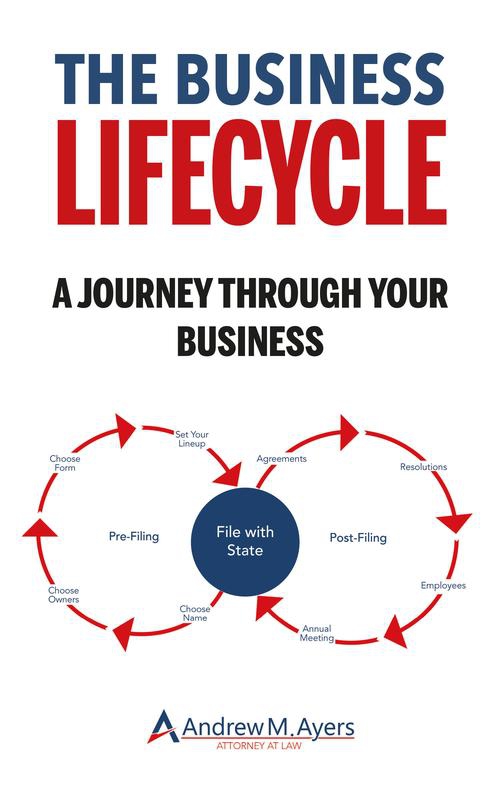My customers owe me money - so what should I do next?
When you're looking at the outstanding balances that your customers owe to you, one of the important things to figure out is what kind of debt it is. There's two main types of debts that you can deal with:
- Consumer debt, meaning you're selling to individuals, you're selling to customers, you're selling to your local people in your neighborhood. If you have a consumer debt that you need to collect against somebody, it's very important that you know that you have to abide by the federal debt collection practices aren't the FDCPA it's going to apply to that debt. And you have to be very careful. That law has very specific requirements as to what you can say to the people who owe you money and the tactics you can use to collect that debt.
- Business debt. So let's say you sold parts to another business. The good news for you is that the FDCPA does not apply in the same way it would with consumer debt. So you have more freedom with the way you can try to get that debt paid off, but there are still going to be rules and regulations you do need to follow when you try to get that debt paid off. The first thing you want to look at is is that debt in writing. Now if you've just been supplying a bunch of products to somebody on a handshake deal, you may be in for a lot of work to be able to collect that debt. However, if you consistently use contracts and invoices and other written demands, and other written proposals, then you probably have a good trail of evidence that shows what you are owed. And that will make the debt collection practice much easier.
Using Demand Letters
If you have a writing that explains what you're owed, one thing to consider is simply using a demand letter. That letter can be as simple as sending a letter that you owe this amount of money. If your contract or your invoice or your purchase order says you're entitled to interest. It's a good idea to have that interest calculation in the library. as well. Down the road, if you have to go to court. That letter may be used as Exhibit A to help you collect on your debt.
Now you don't have to reinvent the wheel when it comes to collecting money. You can probably look at your own home mail. Sometime in your history. You've probably received some kind of a letter from a debt collector. If you've ever gone to a doctor if you've ever dealt with some other large companies. Every now and then something happens a bill such to the crack and you get a letter from a debt collector. Look at the way they do it. They're very effective at what they do and getting people to pay. Frankly, some of them are so effective. They get people to pay debts that they don't even know the debts are too old and they don't legally have to pay anymore.
But the better way to do it is to talk to your attorney. Have them work with you to make sure you can create the right collection letter to help you get paid.
Going to Court to Collect
Now let's say you've got your debt, you've got all of your writings you've sent some demand letters and nothing has happened. Unfortunately, now you're at the point where you're probably going to have to go to court.
If you are a company, you need to remember first and foremost that the company cannot represent itself in court. It's not like an individual. You need to have an attorney represent a company in court. If you're an individual suing a company, that company also has to hire an attorney to represent them and they can't show up and try to represent themselves. This is one of the biggest mistakes I see small business owners run into. I've been in many courtrooms where I'm representing a company that's suing another company and the owner of the other company will show up and try to argue their case before trying to argue why things should be dismissed. The judge will almost always stop the proceedings and say to the other person "You need an adjournment, we'll give you more time but you need to have an attorney represent a company and individually." The president of a company can't just show up and try to represent the company in court. (There's an exception where if the owner of the company is a lawyer, they may be able to represent the company in court, but generally, for most people, you need to have a lawyer to represent your company.)
The Economics of Collections in Court
The other thing you need to think about when you go to court is the economics of this debt. If your business is owed $1,200, the cost to hire an attorney and go to court will likely far exceed that $1,200. So you want to consider what the economics are. You may be able to go to small claims mediation or some kind of local dispute resolution for companies, but it may not make sense to hire an attorney for $1,200 debt.
However, if you're owed $5 or $6 million, it makes a lot of sense to work with professionals and make sure you have an attorney there to advocate for you and help you collect on that debt. One thing they may be able to look at through collection work is
"Did you have that provision in your contract that your attorney's fees are paid for if you have to collect on unpaid balances?"
If you don't have that in your contract, you may want to go look at it right now and call an attorney and make sure that you get that in all your contracts going forward. Because if that provision is in the contract, going to court can be a lot less painful. At the end of the case, in addition to the amount that you're owed, you can ask the court to award you your attorney's fees. Now there's no guarantee you will win all of these attorney's fees. So let's say you're suing on a $25,000 debt and your attorney's fees are $89,000. The judge is going to look over the bills and chances are they wouldn't necessarily award you $89,000 in attorneys fees, but they'll give you some kind of award based upon that provision in the contract.
Now, when you're dealing with the business debt, as we've talked about, you probably have to work with an attorney if you're going to go to court. You can also try to do some of this yourself. You can have a template made up for demand letters if you're consistently running into clients who are not paying the balances. But the best way to work with the collections for your business is to work with a professional. Work with an attorney who can help your business create a system for collecting your debts.
If you don't have an attorney or you'd like to go through some options, let's schedule a legal strategy session. We can hop on the phone for 20 minutes and discuss where your business is what your collection efforts look like. And we can see if it's a good fit for us to work together to maybe streamline the process and make sure you get your balances paid. It's a hard situation to be in when you're a small business and your customers owe you money. But you don't have to just give up on the debts. There are mechanisms and ways for you to collect those balances.





